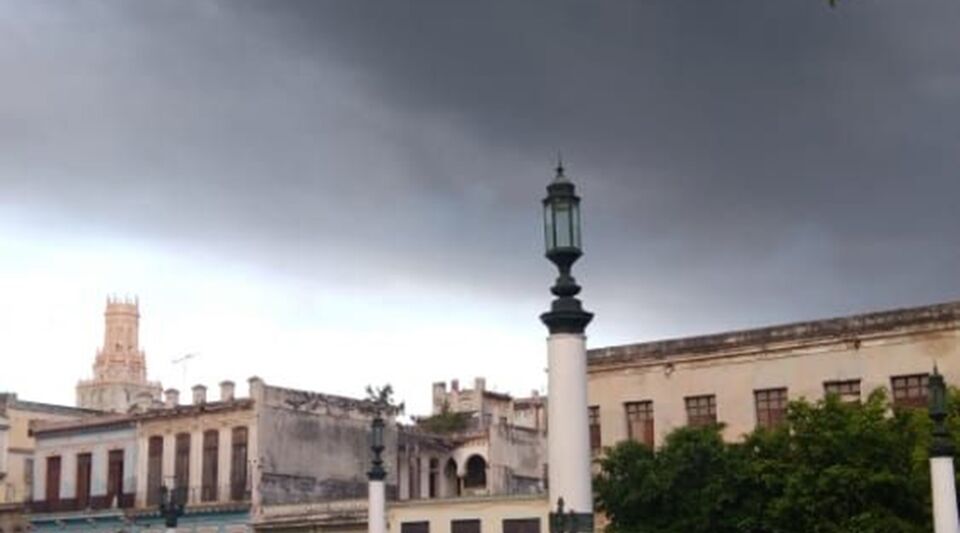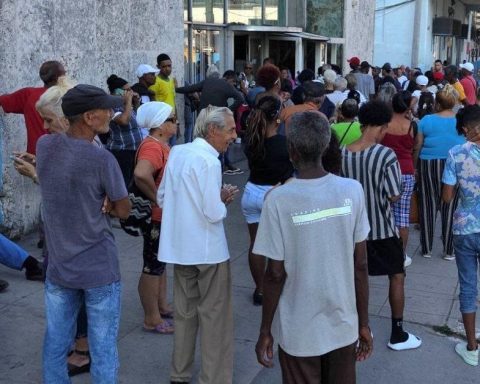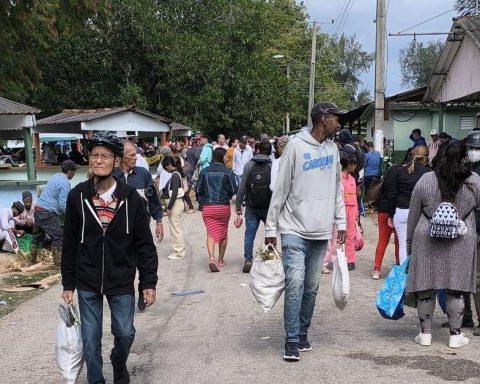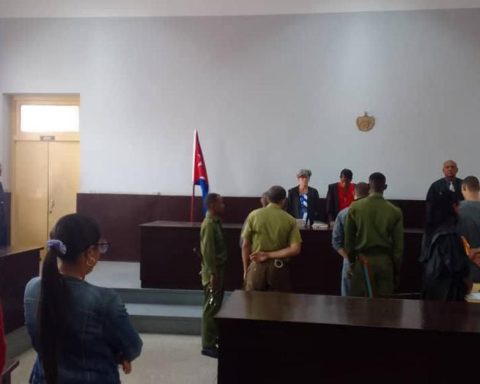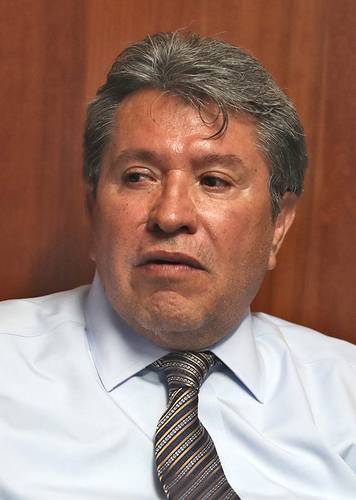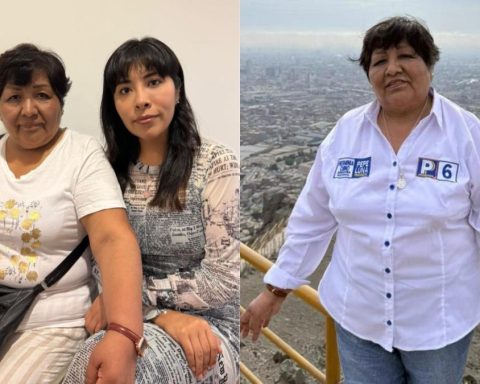This morning, when the coffee pots began to pour over the stoves and the people of Havana opened the windows of their houses, the black cloud was already floating over the city. Rampant, dense, sour, like the announcement of worse things. The Cuban’s instinct recommends shutting himself up until the disaster passes, as if the smoke had to respect the same spells as a hurricane.
“The weather is like a cyclone,” an old woman with a Guantanamo accent, almost Indian, can be heard saying, “now the epidemics are going to increase.” It is an old belief of the Cuban peasant: the stillness in the air, the nervousness of the animals and children, the silence of the birds, the trail of diseases, are signs that an enormous crab of dark clouds and acid rain is about to to fall
However, the cloud is not the harbinger of a storm. In vain, a woman from Havana fiddles with her phone, consulting weather applications. “I don’t know what’s going on,” she says, “the device says the sky is clear.”
On television, a weather presenter admits, as if she were not authorized to reveal this information, that the smoke from the explosion of the Supertanker Base in Matanzas is already bordering the northern coast of the Island.
The cloud advances over the western coast of Cuba, unhurriedly, still feeding on the remote fuel from Matanzas. Some boys, looking in their windows, point to the sinister outline that covers the sun and remember the last battle of The Lord of the rings. Before the hobbits destroyed the ring in the volcano of Mordor, and there was peace and well-being, the black cloud of Sauron threatened to fall on the entire kingdom.
During Sunday, two downpours filled the city with viscous puddles, with a smell of burning gasoline that impregnated the walls and cobblestones of Havana. At night, the red glow of another explosion was visible from shore.
“The Faustino Pérez hospital is completely collapsed. They have had to move and regroup the patients, so that everyone can fit in”
“It’s like a movie,” another woman from Havana tells this newspaper. “I never thought to live something like this and I have a taste of unreality in my mouth, as if it were not life.” “We have the salary upstairs,” concludes an octogenarian, walking slowly in front of the Ameijeiras hospital and without letting go of the mask on her face.
Asthmatics and those suffering from various allergies have been especially affected by air pollution. Many patients with lung problems have come to hospitals with sore throats and burning eyes, compounded by the anguish of not being able to breathe properly.
Paradoxically, the proximity to the explosion has been somewhat beneficial for Matanzas: they have been able to avoid the direct impact of the smoke, which goes up. “We have been lucky that the city is like a great amphitheater,” he tells 14ymedio a matanzaro “The industrial zone is below, but from Varadero or Boca de Camarioca you can see the thickest part of the cloud.”
“The authorities were not prepared for a disaster of this magnitude,” he adds. “The Faustino Pérez hospital is completely collapsed. They have had to move and regroup the patients, so that everyone can fit in.” Many others have been referred to Havana hospitals such as Calixto García and Ameijeiras, and sending some to the larger burn wards in Santa Clara has also been considered.
The situation becomes even more delicate if it is considered that health establishments, without medical supplies, are saturated by outbreaks of covid-19 and dengue hemorrhagic fever in the province.
The other side of the accident, which has nothing to do with the Government but with the collective sense of survival and brotherhood in the face of disaster, makes many drivers put their cars at the disposal of doctors and patients. There have been donations and a lot of generosity.
However, nobody understands how an industrial zone of the caliber of Matanzas has only two fire trucks, obsolete and without the capacity to face an event of this type.
Sadly, there have also been robberies in the houses of evacuees, which has put some Matanzas on a war footing, and they have had to send some relatives to danger zones to stand guard over their belongings.
The saddest thing, says the man, has been the disappearance of the 17 boys who, it is assumed, spent their military service in the fire department. “They were sent to die, who would think of putting out such a gigantic fire with water hoses?”
Regarding the deceased firefighters, in Havana there are those who remember the disaster of the Isasi hardware store, in 1890, a fire of nebulous causes that cost the lives of several rescuers in colonial Cuba. To remember the fallen, an extraordinary monument was erected in the Colón Cemetery, guarded by allegorical sculptures of Abnegation, Pain, Heroism and Martyrdom.
The young people who appear in one of the photos of the explosion in Matanzas, pointing jets of water at the tanks, did not have to die like this. Those who sent them understood the risk and the impossibility of putting out the fire in this way. “Now they will want to turn them into heroes,” like the Isasi firefighters, assures a man from Matanzas, “but they will never tell what happened.”
“They were sent to die, who would think of putting out such a gigantic fire with water hoses?”
A mother is happy that, with everything that is happening in Cuba, her son has been able to leave the country. “Even though seeing things from afar hurts a lot,” she says, “it reassures me to know that, at least, he’s not here to suffer all this.”
Surprised by the great atmospheric signs, some Cubans look for metaphysical explanations for the explosion and speak of “abandonments” and “divine punishments”. Others agree that it is negligence and lack of state vision. Every minute, a television presenter tries to give a version of the events and, minutes later, an official denies or contradicts him.
Through the streets and even inside the houses, the masks have returned as a respiratory protection measure, due to the pollution that takes over the cities.
The clock has stopped, as if the west of the Island were going through an eclipse: darkness covers everything, although a strong sea wind has unsuccessfully tried to disperse the black cloud.
As the images of Matanzas become clearer, many Cubans relate that burning structure, which is falling apart in the heat and fire, with the last gasps of the Government, unable not only to bring prosperity to the country, but also to control the disasters it has caused.
________________________
Collaborate with our work:
The team of 14ymedio is committed to doing serious journalism that reflects the reality of deep Cuba. Thank you for joining us on this long road. We invite you to continue supporting us, but this time becoming a member of our newspaper. Together we can continue transforming journalism in Cuba.
